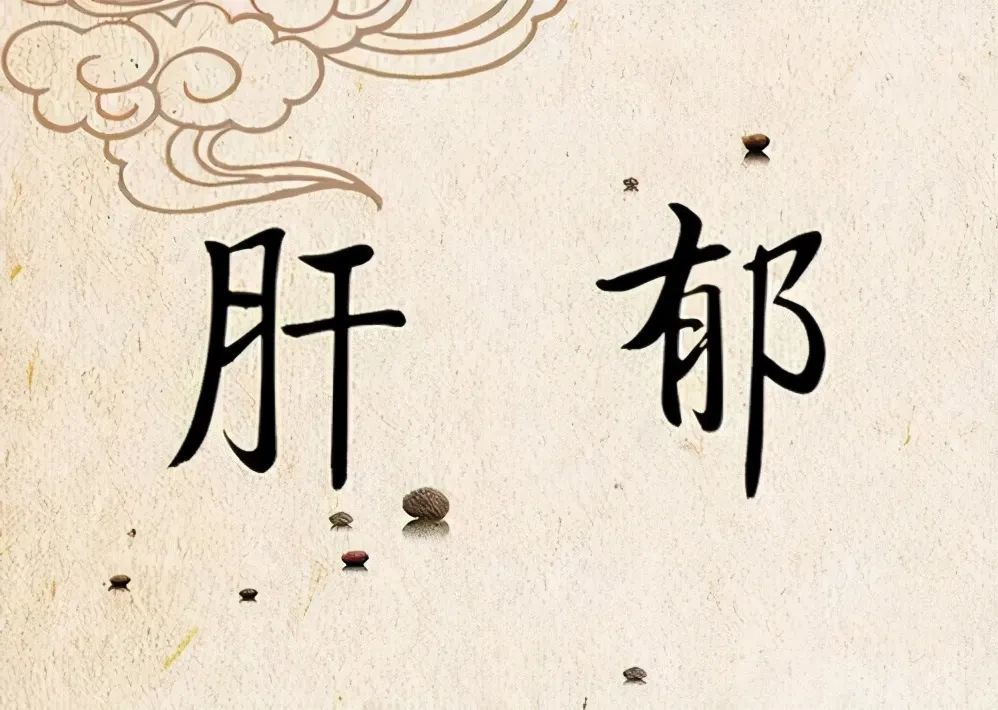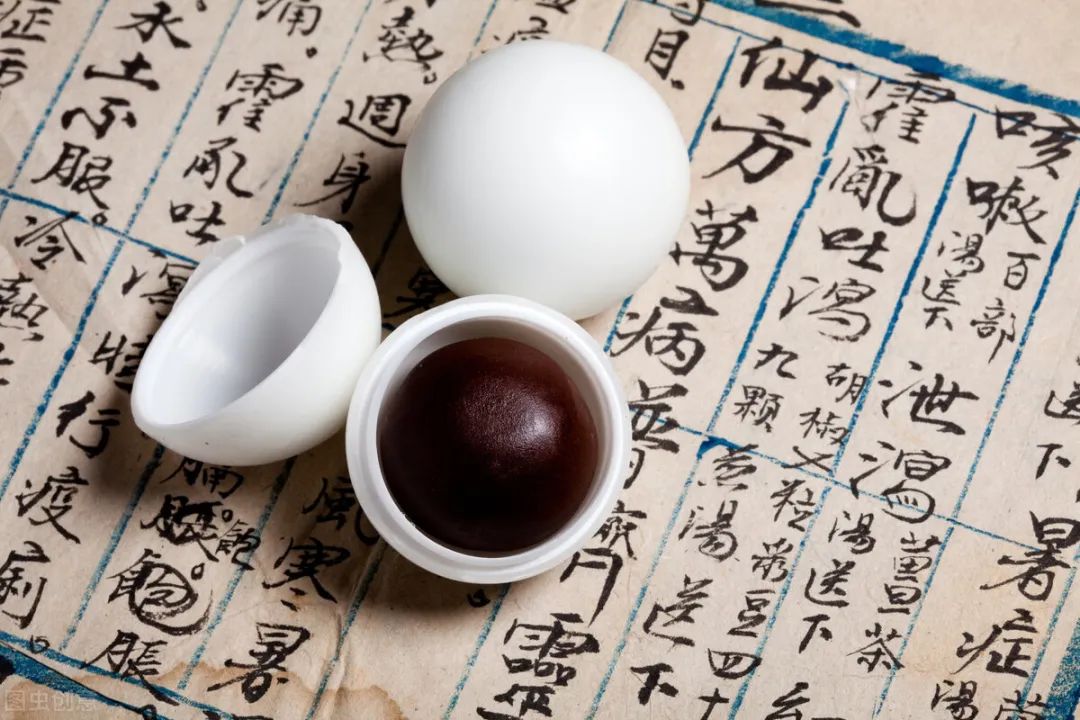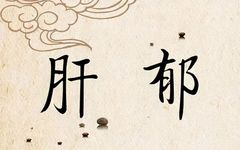The liver is a very important organ in our body for detoxification. When people experience anger and depression, it can harm the liver. This leads to a condition known as gan yu qi zhi (liver qi stagnation), which is a term used in Traditional Chinese Medicine (TCM). Today, we will explore what liver qi stagnation is all about.

Liver qi stagnation primarily refers to the abnormal function of the liver’s ability to regulate and disperse, leading to a state of qi stagnation.
In TCM, it is said: “The liver is a strong organ, it prefers smoothness and dislikes depression; in terms of emotions, it is associated with anger.” This expresses that the liver is a vigorous and impatient organ that thrives on calm and gentle emotions, and does not favor anger or depression.
How to Determine Liver Qi Stagnation?
In TCM, it is believed that all diseases arise from qi. Therefore, only by resolving the issue of liver qi stagnation can women reduce their illnesses or even avoid them altogether.
1. Causes of Liver Qi Stagnation
Social Pressure: For instance, older unmarried women often face pressure from parents, relatives, and colleagues regarding marriage, compounded by negative societal views on their situation, leading to significant stress and liver qi discomfort.
Work Pressure: In modern workplaces, there is no gender preference; women face unprecedented stress, especially white-collar women, who are often torn between family and career, resulting in widespread liver qi discomfort.
Family Disharmony: Frequent arguments between spouses or tense relationships with in-laws can also lead to liver qi discomfort.
Poor Self-Regulation: Many women struggle to cope with issues, tend to dwell on negative aspects of life and work, and lack the ability to self-soothe, which often results in liver qi stagnation.

2. Manifestations of Liver Qi Stagnation
One manifestation is qi stagnation, where qi is trapped in the body, leading to feelings of depression and oppression, commonly described as feeling “stifled” or “suffocated.” This is a typical sign of liver qi stagnation. Prolonged liver qi stagnation can generate heat, leading to excessive liver fire and irritability. Some individuals may sigh frequently and feel unhappy, while others may become impulsive and easily angered, causing distress to themselves and others.
How to Determine if You Have Liver Qi Stagnation?
The most critical evidence of liver qi stagnation can be found on the tongue. Generally, a person’s tongue is oval-shaped, while someone with liver qi stagnation will have a pointed tongue, often with a red tip and edges—this is a key indicator of liver qi stagnation.
Additionally, the following “evidence” may be present:
Bitter Mouth: Especially in the morning, there may be a bitter taste in the mouth.
Sensation of a Lump in the Throat: A feeling of obstruction in the throat, as if something is stuck, which is referred to as “mei he qi” (plum pit qi).
Dry Throat: A sensation of dryness in the mouth and throat, as if there is no moisture, although some may still have saliva visible on the tongue.
Dizziness: Some women frequently experience dizziness, which may be constant or occur suddenly, and some may also have headaches.
Low Mood: Feelings of sadness, sighing, and heightened sensitivity.
Poor Appetite: “Liver wood counteracts spleen earth,” so liver qi stagnation can lead to various spleen and stomach issues, such as lack of appetite, bloating, and stomach pain.
Chest Tightness: A feeling of tightness in the chest, even leading to palpitations, which may be diagnosed as heart problems. However, individuals with heart issues should first address liver qi stagnation if their tongue is pointed, as this can alleviate heart problems.
Frequent Nausea: Due to the influence of “liver wood counteracting spleen earth,” leading to upward stomach qi, resulting in belching, acid reflux, or even vomiting.
Irritability: Individuals with liver qi stagnation often feel irritable and easily angered.
Insomnia with Vivid Dreams: Insomnia can primarily stem from two causes: blood deficiency or liver qi stagnation. Frequent dreaming is also a sign of liver qi stagnation, as such individuals tend to dream continuously upon falling asleep.
Cold Hands and Feet: Many know that cold extremities can result from yang deficiency, blood deficiency, or blood stasis, but few understand that liver qi stagnation can also cause cold hands and feet. If cold extremities are present along with the aforementioned symptoms, consider the possibility of liver qi stagnation.
All of the above are criteria for diagnosing liver qi stagnation. If at least one or two symptoms match, and the tongue is pointed, it can generally be concluded that liver qi stagnation is present.
Four Major Formulas to Improve Liver Qi Stagnation
1. Xiao Yao Wan (Free and Easy Wanderer Pill)
The main ingredients include Chai Hu (Bupleurum), Bai Shao (White Peony), Bo He (Peppermint), Dang Gui (Angelica Sinensis), Chao Bai Zhu (Fried Atractylodes), Zhi Gan Cao (Honey-Fried Licorice), Fu Ling (Poria), and Sheng Jiang (Fresh Ginger). Chai Hu and Bo He have qi-regulating effects, while Dang Gui and Bai Shao nourish blood and regulate menstruation.
This formula helps to soothe the liver, strengthen the spleen, and alleviate menstrual pain, effectively treating breast swelling, lack of appetite, and emotional distress caused by liver qi stagnation and spleen deficiency.

2. Shu Gan Wan (Liver Soothing Pill)
This TCM formula is very effective for regulating liver qi stagnation, primarily composed of Yan Hu Suo (Corydalis), Chuan Lian Zi (Melia Toosendan), Pian Jiang Huang (Turmeric), Chen Xiang (Agarwood), Mu Xiang (Saussurea), Sha Ren (Amomum), Zhi Qiao (Bitter Orange), Dou Kou Ren (Cardamom), Bai Shao (White Peony), Fu Ling (Poria), Hou Po (Magnolia Bark), Chen Pi (Dried Tangerine Peel), and Zhu Sha (Cinnabar).
This formula has the effects of soothing the liver and stomach, regulating qi, and relieving pain. It can alleviate stomach pain, chest tightness, and belching caused by liver qi stagnation.
3. Chai Hu Shu Gan Wan (Bupleurum Liver Soothing Pill)
The main ingredients include Xiang Fu (Cyperus), Chai Hu (Bupleurum), Zhi Qiao (Bitter Orange, fried), Chuan Xiong (Ligusticum), Bai Shao (White Peony), Chen Pi (Dried Tangerine Peel, vinegar-fried), and Gan Cao (Licorice, fried).
This formula helps to soothe the liver, regulate qi, and invigorate blood, suitable for patients with chest and rib pain, irritability, and emotional distress due to liver qi stagnation.
4. Dan Zhi Xiao Yao Wan (Gardenia Free and Easy Wanderer Pill)
This formula is based on Xiao Yao Wan, with the addition of Mu Dan Pi (Moutan Cortex) and Zhi Zi (Gardenia) to clear liver fire. It has the effects of clearing heat, regulating menstruation, and soothing the liver, suitable for women with liver qi stagnation transforming into fire, feelings of frustration, chest and rib pain, dry mouth, facial redness, lack of appetite, tidal fever, early menstruation, menstrual irregularities, and breast swelling.
Apart from using medicinal treatments, dietary adjustments can also be a good choice for managing liver qi stagnation. When cooking, consider adding some TCM herbs that help regulate liver qi, such as Dang Shen (Codonopsis), Shan Zha (Hawthorn), Da Zao (Jujube), Fo Shou (Buddha’s Hand), Huang Qi (Astragalus), and Gou Qi Zi (Goji Berries).

